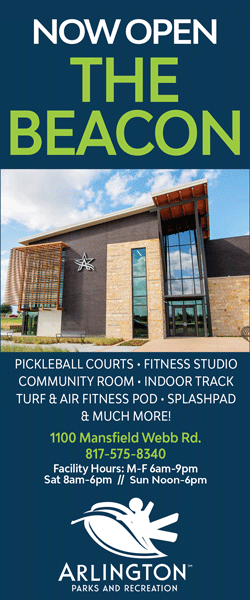This month, we visit with first-year State Representative (and former Mansfield Mayor) David L. Cook, who shares his thoughts about serving a broader constituency from a new home-away-from-home in Austin.
ARLINGTON TODAY: Now that you’ve had time to settle in as a state representative, what have been the highlights so far for you in your new elected position?
DAVID COOK: The highlights for me this session involve passing legislation that reflects the views of my constituents. In a session that could have been bulldozed by the COVID-19 pandemic and Winter storm Uri, we strengthened human trafficking laws, improved mental health services, improved the electric grid in Texas, and advocated for rights of the unborn child and of individuals to worship, especially when health and safety is threatened by a declared disaster … BUT there is still much work left to be done.
AT: What is an average day like for you now, especially compared to your mayoral duties?
DC: My duties as State Representative vary from day to day and were vastly different when comparing a day in January to a hair-on-fire day in late May. During the 140 days in Austin, daily life is constantly fluctuating. On any given day, I could be on the House floor voting on large, omnibus pieces of legislation, listening to and interacting with individuals during a committee hearing, and/or talking to constituents and lobbyists who visit my office. As Mayor, I was involved in setting the agenda and running the council meeting; whereas in the State House the procedure is dictated by the House Rules and is comprised of the 150 House members as opposed to seven council members. That being said, my years of experience serving as the Mayor of Mansfield prepared me well for my role as State Representative, and I am thankful for all of my constituents for allowing me to serve since 2008.
AT: What legislative measures do you anticipate addressing during the rest of the year, and how do you, personally, engage with your constituents to ensure that you represent them in the best way possible?
DC: When the legislature reconvenes for Special Session most likely in the Fall, I believe we will focus on election integrity, Criminal Justice Reforms, and redistricting. Election integrity is vital to make sure we have secure elections in order to ensure that every voter’s ballot is properly counted. We will also consider Bail reform, another emergency item declared by the Governor and an issue of which I have long been a supporter.
Beyond the issues to be covered in Special Session, I have been placed on the Juvenile Justice and Family Issues Committee and the Criminal Jurisprudence Committee. I intend to continue using my years of expertise as a Family Law attorney to help chairs [Victoria] Neave and [Nicole] Collier on matters assigned to us by Speaker [Dade] Phelan for Interim Study.
Communication with my constituents will always be a top priority. I spend time listening to my constituents and conversing over the phone, sending and receiving letters, and reading emails of opinions. I am also able to update thousands of my constituents at once thanks to modern technology and social media apps like Facebook and Twitter. Though I was in Austin and miles away from home, I was grounded in knowing that my new position as a State Representative has given me the opportunity to amplify the voices of my constituents.
AT: What’s the best advice a veteran representative or veteran representatives has shared with you since you took office?
DC: Best advice – To remain in close contact with my constituents and to always remember that a member’s integrity, or lack thereof, is vitally important to one’s success in the Legislature.
AT: Given the tense political climate in the nation in general, what message would you share with Texans that might help them feel confident that we’ll be able to weather political storms and come out a better state?
DC: I believe that in Texas we are different than the Washington, D.C. style of politics. During the 87th Legislative Session, we showed that Legislators can reach across the aisle to pass bipartisan bills that benefit all Texans. As a member of the House, I have enjoyed getting to know colleagues on both sides of the political spectrum. We work together to help all citizens of Texas, and the time constraint we are under drives action. Though there are disagreements at times, we argue, listen, and compromise where needed to pass meaningful, common-sense legislation.
Additionally, I think it’s important to recognize that politics starts at the local, community level. While there may be a “tense political climate in the nation in general,” I have seen how neighbors come together to discuss community issues at town halls. My time as a Mayor taught me that listening to one another, caring in times of natural disaster and need, and working through problems together is the best way to address issues. Caring about people as individuals first, rather than identifying them by their political ideologies is how I view my constituents.

















